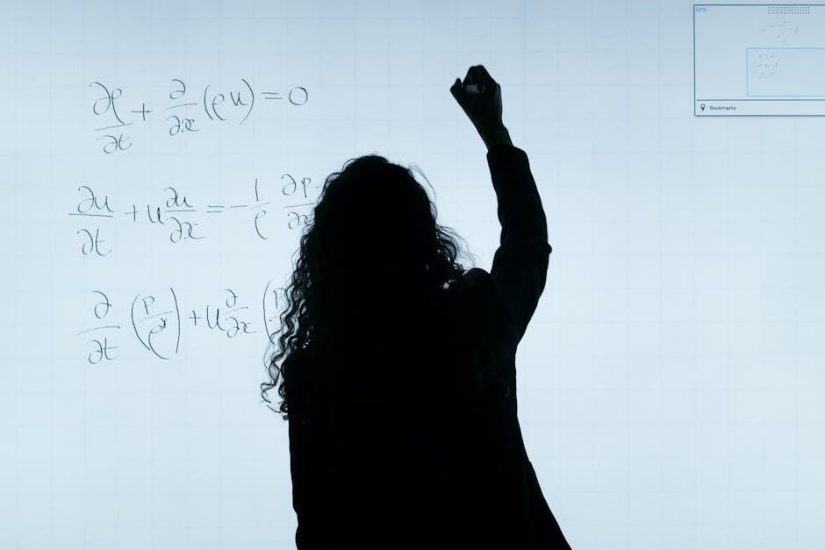Eureka Math Kindergarten provides a comprehensive‚ engaging approach to early math education‚ focusing on foundational skills like counting‚ addition‚ and subtraction. The curriculum emphasizes hands-on activities‚ visual aids‚ and real-world examples to foster a deep understanding of mathematical concepts. Designed to build confidence and fluency‚ it aligns with educational standards and offers parent-friendly resources for continued learning at home.
Overview of Eureka Math for Kindergarten
Eureka Math Kindergarten is a comprehensive‚ parent-friendly curriculum designed to build a strong math foundation. It focuses on hands-on activities‚ visual aids‚ and manipulatives to engage young learners. The program emphasizes fluency in addition and subtraction facts to 5‚ decomposing numbers‚ and understanding place value. With structured modules‚ it progresses from basic counting to geometry basics‚ ensuring a gradual and rigorous learning path. The curriculum is flexible‚ inexpensive‚ and fun‚ making it ideal for both classroom and homeschooling settings. It also provides guides and resources for parents to support their child’s math education effectively.
Key Features of the Eureka Math Kindergarten Program
Eureka Math Kindergarten is designed with key features that foster a strong math foundation. It includes hands-on activities‚ visual aids‚ and manipulatives to engage young learners. The curriculum emphasizes fluency in addition and subtraction facts to 5‚ decomposing numbers‚ and understanding place value. Structured modules progress from counting to geometry basics‚ ensuring a rigorous learning path. Parent-friendly resources‚ such as guides and interactive tools‚ support continued learning at home. The program is flexible‚ inexpensive‚ and fun‚ making it ideal for both classroom and homeschooling settings while aligning with educational standards.
Benefits of Using Eureka Math in Kindergarten
Eureka Math Kindergarten offers numerous benefits‚ fostering a strong foundation in math through engaging‚ hands-on activities. It builds fluency in addition and subtraction facts to 5‚ enabling children to decompose numbers confidently. The curriculum promotes critical thinking and problem-solving skills‚ preparing students for future math challenges. Its parent-friendly design supports homeschooling and in-class learning‚ with visual aids and manipulatives enhancing understanding. The program is rigorous yet fun‚ ensuring young learners develop a positive relationship with math. By aligning with educational standards‚ Eureka Math equips kindergarten students with essential skills for long-term academic success.
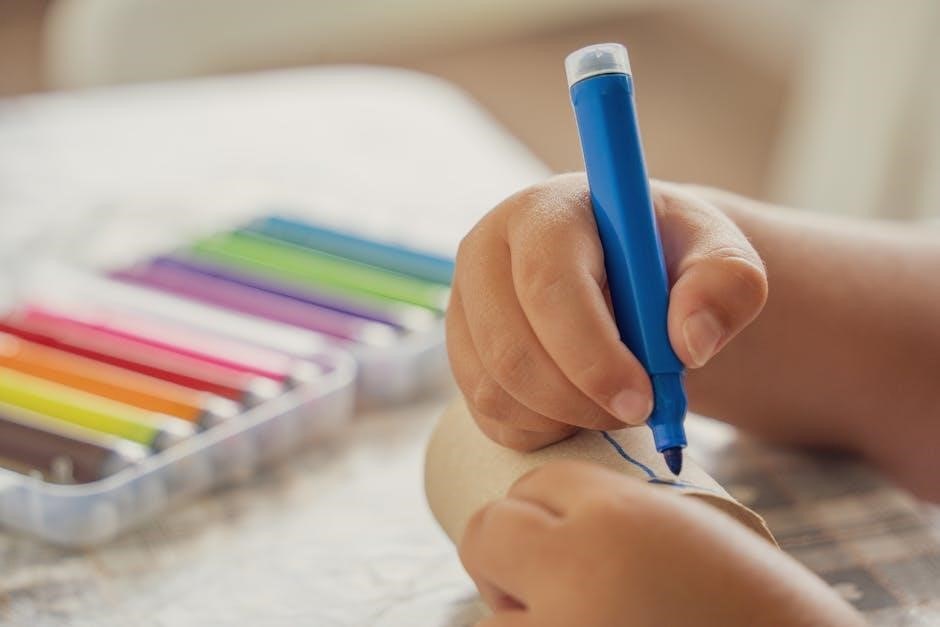
Structure of the Eureka Math Kindergarten Module
Eureka Math Kindergarten is organized into modules covering numbers‚ addition‚ subtraction‚ place value‚ and geometry. Each module builds foundational skills progressively‚ ensuring a logical flow of learning.
Module 1 of Eureka Math Kindergarten introduces young learners to the basics of numbers and counting. It focuses on developing foundational math skills through interactive and engaging activities. Students learn to count up to 100‚ recognize number names‚ and understand the relationship between numbers and quantities. The module emphasizes hands-on experiences‚ such as using fingers‚ cubes‚ and drawings to represent numbers. This module also introduces fluency with addition and subtraction facts to 5‚ helping students decompose numbers for better understanding. By the end of Module 1‚ children gain confidence in their ability to work with numbers and build a strong math foundation.
Module 2: Exploring Addition and Subtraction Concepts
Module 2 of Eureka Math Kindergarten delves into the fundamentals of addition and subtraction‚ building upon the counting skills introduced in Module 1. Students learn to apply counting strategies to solve simple addition and subtraction problems‚ using manipulatives like cubes and fingers to visualize concepts. The module introduces word problems‚ encouraging storytelling and real-world applications of math. Through interactive activities‚ children practice counting on and counting back to find solutions. This module also reinforces fluency with numbers up to 10‚ helping students develop a strong foundation in basic arithmetic operations and problem-solving skills.
Module 3: Understanding Place Value and Basic Operations
Module 3 introduces kindergarteners to foundational place value concepts and basic operations. Students explore numbers up to 100‚ learning to count‚ compare‚ and sequence. Using manipulatives like base ten blocks‚ children begin to understand the relationship between tens and ones. The module reinforces addition and subtraction skills‚ encouraging the use of strategies like counting on and counting back. By the end of this module‚ students demonstrate an understanding of place value and apply basic operations to solve problems involving larger numbers‚ building a solid numerical foundation for future math concepts.
Module 4: Shapes and Geometry Basics
Module 4 focuses on introducing young learners to fundamental geometry concepts‚ starting with identifying and naming basic shapes such as squares‚ circles‚ triangles‚ and rectangles. Students explore the attributes of each shape‚ including the number of sides‚ vertices‚ and whether they are open or closed. Hands-on activities involve sorting‚ creating‚ and comparing shapes using manipulatives like blocks and pattern tiles. The module also introduces basic geometry vocabulary and encourages students to recognize shapes in their everyday environment‚ fostering spatial awareness and critical thinking skills essential for future math exploration.
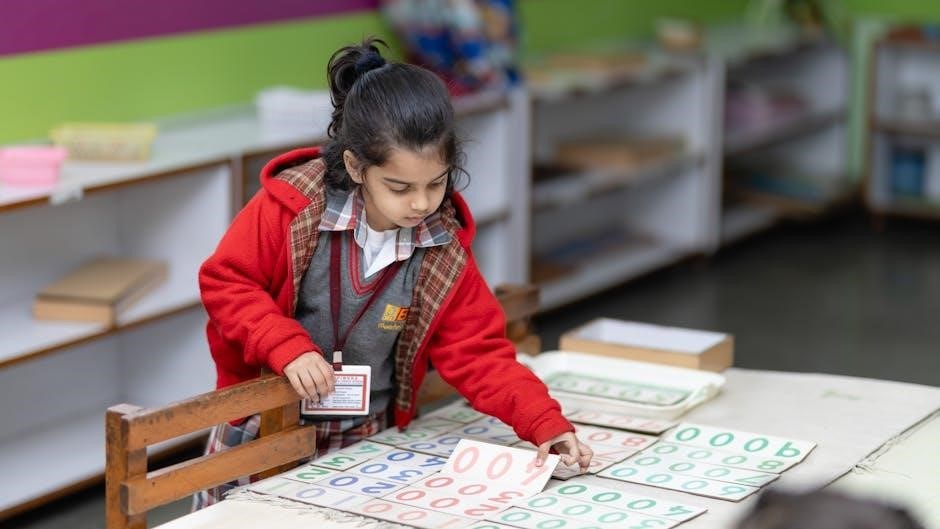
Fluency Milestones in Eureka Math Kindergarten
Kindergarteners achieve fluency with addition and subtraction facts to 5‚ learning to decompose numbers into smaller parts for better understanding and problem-solving.
Addition and Subtraction Facts to 5
In Eureka Math Kindergarten‚ students master addition and subtraction facts to 5‚ building a strong foundation for arithmetic. They learn to decompose numbers‚ such as breaking 5 into 4+1 or 3+2‚ to solve problems effortlessly. This milestone ensures fluency in basic operations‚ enabling students to apply these skills in real-world scenarios. The curriculum uses engaging activities and visual aids to make learning interactive and fun‚ fostering confidence and a deep understanding of math concepts.
Decomposing Numbers for Better Understanding
Decomposing numbers is a key strategy in Eureka Math Kindergarten‚ helping students break down numbers into smaller parts for easier problem-solving. For example‚ the number 5 can be split into 3+2 or 4+1. This method enhances understanding of addition and subtraction‚ fostering mathematical flexibility. By using manipulatives and visual aids‚ students develop a concrete grasp of number relationships‚ which is essential for building a strong math foundation. This approach encourages critical thinking and prepares students for more complex operations in higher grades.
Progression of Fluency Throughout the Year
Eureka Math Kindergarten emphasizes a gradual development of math fluency‚ starting with basic addition and subtraction facts to 5. Early in the year‚ students focus on single-digit operations‚ learning to decompose numbers into smaller parts. As the curriculum progresses‚ they explore multi-digit problems‚ building on prior knowledge. Hands-on activities and visual aids‚ like cubes and drawings‚ support this journey. By year-end‚ students achieve fluency in addition and subtraction within 10‚ laying a strong foundation for higher-grade math. This structured progression ensures a seamless transition to more complex operations‚ fostering confidence and readiness for future challenges.

Parent-Friendly Resources in Eureka Math
Eureka Math provides hands-on activities‚ visual aids‚ and parent guides to support Kindergarten math education. These resources help parents engage with their child’s learning effectively.
Hands-On Activities for Kindergarten Math
Eureka Math Kindergarten incorporates engaging hands-on activities to help young learners grasp mathematical concepts. These activities include using manipulatives like cubes‚ fingers‚ and drawings to explore addition and subtraction. Students also participate in counting games‚ shape sorting‚ and real-world problem-solving‚ such as measuring objects or grouping toys by attributes. These interactive experiences make math relatable and fun‚ encouraging curiosity and active participation. By involving physical and visual tools‚ the curriculum ensures that kindergartners develop a strong foundation in math through play and exploration.
Visual Aids and Manipulatives for Learning
Eureka Math Kindergarten heavily relies on visual aids and manipulatives to enhance learning. Tools like cubes‚ fingers‚ and drawings help students visualize addition‚ subtraction‚ and place value concepts. Colorful charts and number lines are used to demonstrate counting and basic operations‚ making abstract ideas tangible. Shape sorters and geometry tools introduce foundational geometry skills‚ while counting bears and blocks aid in understanding attributes and quantities. These resources allow kindergarten students to explore math through hands-on‚ interactive experiences‚ fostering a deeper understanding and engagement with the material. Visual aids also help reinforce concepts learned in class‚ making math accessible and enjoyable for young learners.
Parent Guides for Supporting Math Education
Eureka Math provides comprehensive parent guides to support kindergarten math education at home. These guides include tips for reinforcing lessons‚ explanations of key concepts‚ and activities that align with the curriculum. Parents can use these resources to create a consistent learning environment‚ helping their children build a strong math foundation. The guides also offer insights into how to encourage problem-solving and critical thinking‚ ensuring that parents are empowered to contribute effectively to their child’s educational journey. By bridging classroom and home learning‚ these guides foster collaboration and continuity in math education for young students.

Eureka Math Alignment with Educational Standards
Eureka Math is carefully designed to align with educational standards‚ ensuring a comprehensive and structured approach to math education‚ while preparing students for long-term academic success.
Common Core State Standards for Mathematics
Eureka Math is designed to align with the Common Core State Standards for Mathematics‚ ensuring a robust foundation in counting‚ addition‚ and subtraction. The curriculum emphasizes hands-on activities‚ real-world examples‚ and visual aids to help students grasp mathematical concepts. By focusing on fluency with basic facts and decomposing numbers‚ it prepares students for advanced math skills. The structured approach ensures that students meet key standards‚ such as understanding place value and applying math to real-life situations‚ fostering a strong mathematical mindset from an early age.
Skills and Concepts Covered in the Curriculum
The Eureka Math Kindergarten curriculum focuses on foundational math skills‚ including counting‚ addition‚ and subtraction facts to 5. Students learn to decompose numbers‚ understand place value‚ and explore basic geometry through shapes. Hands-on activities and visual aids‚ like cubes and drawings‚ help children represent mathematical ideas. The program emphasizes problem-solving and critical thinking‚ preparing young learners for advanced math concepts. By aligning with educational standards‚ it ensures a comprehensive introduction to essential skills‚ fostering a strong math foundation and confidence in problem-solving abilities.
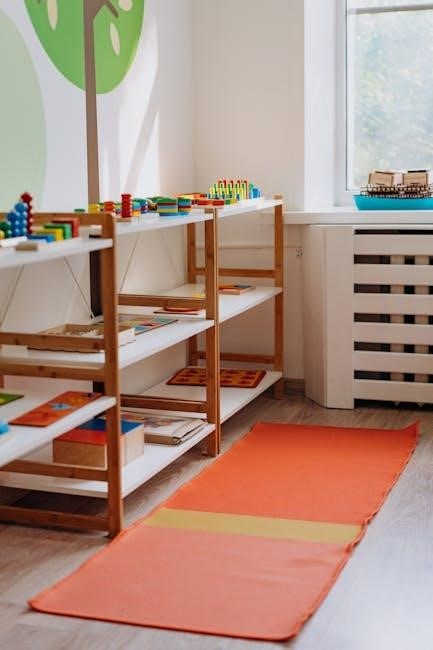
Teaching Strategies in Eureka Math Kindergarten
Eureka Math Kindergarten employs hands-on activities‚ visual aids‚ and real-world examples to engage young learners. The curriculum emphasizes problem-solving approaches and critical thinking‚ fostering a strong math foundation.
Problem-Solving Approaches for Young Learners
Eureka Math Kindergarten introduces problem-solving through storytelling and visual aids‚ helping children connect math to real life. Activities like using fingers‚ cubes‚ and drawings to represent addition and subtraction stories encourage critical thinking and creativity. The curriculum emphasizes decomposing numbers‚ such as breaking down 5 into 4 and 1‚ to build a strong foundation in arithmetic. These strategies make math engaging and accessible‚ allowing young learners to develop essential skills in a fun and interactive way‚ while fostering confidence and curiosity in their mathematical journey.
Use of Real-World Examples in Lessons
Eureka Math Kindergarten integrates real-world examples to make math relatable and engaging. Lessons use everyday objects and scenarios‚ such as counting toys or sharing candies‚ to teach concepts like addition and subtraction. Visual aids like fingers‚ cubes‚ and drawings help children visualize problems. Storytelling and practical applications‚ such as representing numbers through real-life situations‚ foster a deeper understanding. This approach ensures math is fun and relevant‚ encouraging young learners to see its value in their daily lives while building a strong foundation for future skills.

Problem-Solving Skills in Eureka Math
Eureka Math enhances problem-solving skills through hands-on activities‚ real-world examples‚ and interactive games‚ fostering critical thinking and a strong math foundation in young learners.
Word Problems and Storytelling in Math
Eureka Math kindergarten integrates word problems and storytelling to engage young learners‚ making math relatable and fun. Students explore addition and subtraction through real-world scenarios‚ using visual aids like fingers‚ cubes‚ and drawings to represent abstract concepts. Storytelling helps children connect math to everyday life‚ fostering critical thinking and problem-solving abilities. The curriculum encourages using manipulatives to act out word problems‚ building fluency and confidence. This approach ensures students develop a strong foundation in math while enjoying the learning process‚ aligning with educational standards for early childhood education.
Critical Thinking and Reasoning Abilities
Eureka Math kindergarten fosters critical thinking and reasoning through hands-on activities and real-world examples. Students learn to decompose numbers‚ solve word problems‚ and use manipulatives to visualize mathematical concepts. The curriculum encourages children to question‚ explore‚ and justify their solutions‚ developing strong logical reasoning skills. By engaging in storytelling and problem-solving‚ young learners build the ability to think abstractly and approach challenges with confidence. This focus on reasoning aligns with educational standards‚ preparing students for advanced math skills and lifelong learning. The program ensures a solid foundation in critical thinking‚ essential for future academic success.
Assessment and Progress Tracking
Eureka Math kindergarten uses exit tickets to monitor progress. Quizzes and informal assessments track student understanding and fluency in math concepts throughout the year.
Exit Tickets for Monitoring Student Progress
Exit tickets in Eureka Math Kindergarten are brief assessments used to monitor student progress. They help teachers gauge understanding of concepts like addition and subtraction facts to 5. These tools allow educators to track fluency milestones and adjust instruction. By navigating through the PDF‚ exit tickets provide insights into each child’s grasp of decomposition and basic operations. Regular use ensures personalized learning and keeps students on track to build a strong math foundation. This approach supports timely interventions and celebrates individual growth throughout the year.
Quizzes and Informal Assessments
Quizzes and informal assessments in Eureka Math Kindergarten are designed to evaluate students’ grasp of math concepts in a low-stakes environment. These tools help teachers identify areas where students may need additional support‚ such as fluency with addition and subtraction facts to 5 or understanding place value. Informal assessments‚ like class discussions and hands-on activities‚ provide insights into students’ problem-solving skills and critical thinking. The curriculum’s structure allows for frequent‚ brief checks on progress‚ ensuring personalized learning and timely interventions. This approach supports the development of a strong math foundation and prepares students for future challenges.
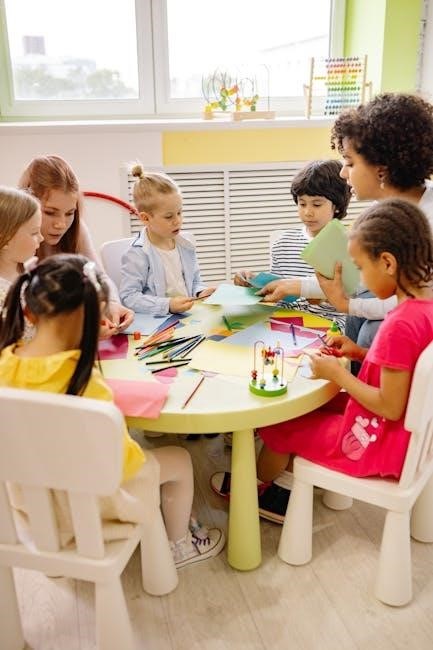
Differentiated Instruction in Eureka Math
Eureka Math Kindergarten offers flexible‚ engaging lessons tailored to diverse learners‚ incorporating scaffolding and enrichment activities to support all students’ unique needs and abilities effectively.
Scaffolding for Diverse Learners
Eureka Math Kindergarten incorporates scaffolding techniques to support diverse learners‚ ensuring all students can access and master content. By breaking down complex concepts into manageable steps‚ the curriculum allows teachers to provide targeted support. Visual aids‚ manipulatives‚ and hands-on activities help reinforce learning. Additionally‚ the program’s structured approach enables teachers to identify areas where students may need extra assistance‚ offering interventions that cater to individual needs. This method ensures that every child‚ regardless of their starting point‚ can build a strong mathematical foundation and progress with confidence.
Enrichment Activities for Advanced Students
Eureka Math Kindergarten offers enrichment activities tailored for advanced students‚ providing challenges that extend beyond the core curriculum. These activities include problem-solving tasks‚ geometry challenges‚ and advanced counting strategies. Interactive games and manipulatives encourage deeper exploration of mathematical concepts. Story problems and real-world applications help students apply their skills in meaningful ways. By incorporating these enrichment opportunities‚ the curriculum ensures that advanced learners remain engaged and motivated‚ fostering a love for math and preparing them for future academic success. These activities are designed to be fun and stimulating‚ aligning with the program’s focus on rigor and creativity.
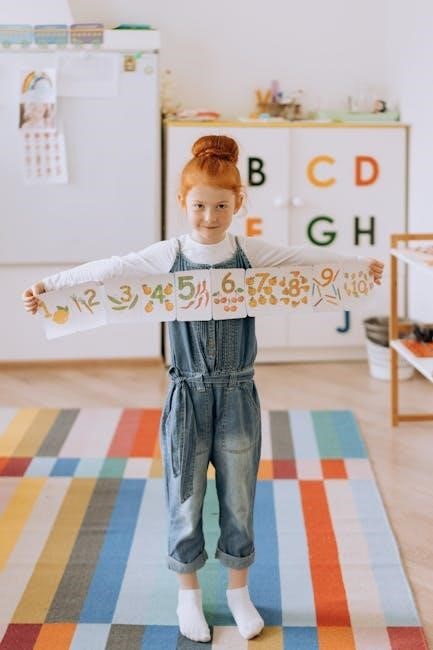
Engagement Strategies for Kindergarten Math
Eureka Math Kindergarten engages students through interactive games‚ collaborative activities‚ and hands-on learning‚ making math enjoyable and accessible. These strategies foster curiosity and active participation in lessons.
Games and Interactive Activities
Eureka Math Kindergarten incorporates fun‚ interactive games to make learning math exciting. Activities like counting games‚ number matching‚ and shape puzzles help children develop problem-solving skills. These hands-on exercises encourage active participation and teamwork‚ fostering a love for math from an early age. The curriculum’s engaging approach ensures that young learners stay motivated while building a strong foundation in numerical and geometric concepts. By integrating play with education‚ Eureka Math creates a dynamic learning environment that supports cognitive growth and creativity.
Collaborative Learning Experiences
Eureka Math Kindergarten encourages collaborative learning through group activities that promote teamwork and communication. Students engage in shared problem-solving‚ such as counting games and shape sorting‚ fostering social interactions and mutual understanding. These experiences help children explain their thinking and learn from peers‚ building confidence and math fluency. Collaborative tasks also introduce real-world applications‚ making math relevant and enjoyable. By working together‚ young learners develop essential skills like cooperation and critical thinking‚ laying a strong foundation for future academic success while nurturing a positive attitude toward mathematics.

Benefits for Homeschooling Parents
Eureka Math offers homeschooling parents a flexible‚ affordable‚ and comprehensive curriculum‚ providing structured lessons and hands-on activities that build a strong math foundation in young learners.
Accessibility and Flexibility of the Curriculum
Eureka Math Kindergarten is designed with flexibility in mind‚ allowing parents to adapt lessons to their child’s pace and learning style. The curriculum is structured yet open-ended‚ ensuring that each child can grasp concepts without feeling rushed. With minimal required materials‚ it is accessible for families with varying resources. The program’s modular approach enables parents to focus on specific skills‚ making it ideal for homeschooling environments where personalized learning is key. This adaptability ensures that every child can thrive‚ regardless of their starting point or learning pace.
Building a Strong Math Foundation
Eureka Math Kindergarten is specifically designed to establish a robust mathematical foundation‚ emphasizing essential skills like counting‚ addition‚ and subtraction. By focusing on fluency with facts up to 5 and decomposing numbers‚ students develop a deep understanding of numerical relationships. Hands-on activities and visual representations‚ such as using fingers or cubes‚ make abstract concepts tangible. This structured approach ensures that children build confidence and a solid base for future math learning‚ setting them up for long-term success in mathematics.
